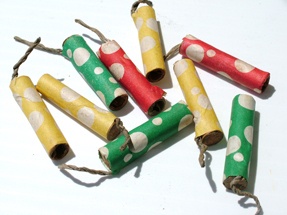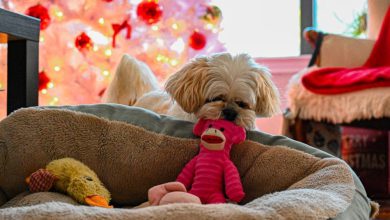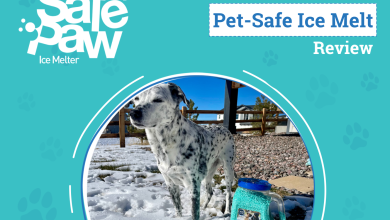
Is Your Dog Afraid of Loud Noises? If so, then this article is for you. Some dogs get startled, run around, go hide, or continuously bark or whine when they hear something loud. This could be from only one type, or all loud noises such as a firecracker, a gunshot, construction or power tools, engine or horn sounds, and many other noises. We had a Collie when I was young who would run in terror and hide if someone just struck a match!
Many times such behavior depends on the environment the dog grew up in. If your dog originally came from a quiet place, then he may be easily startled by loud noises. It could also be similar for dogs that grew up in shelters or kept in small places and not trained in socialization skills. And for city dogs who deal with noise and traffic every day, they might get so used to such sounds that they totally ignore them.
Is Your Dog Afraid of Loud Noises?
But for the dogs who fear loud noises, then following are some ways to get your dog used to them:
- Habituation– tjos means getting the dog used to the noise. When your dog hears a sound over and over again, it will simply get tired of it and lose interest, the same as when he plays with the same toys or eat the same kind of food at every meal. Getting your dog used to such noises can help lessen his stress and stimuli. If your dog is afraid of car horns, for example, expose him on city traffic and eventually, he will learn to cope with the noise and think of it as not harmful or not interesting to him. And with this, he will not get startled by the noise anymore. In fact, most dogs that live in urban areas know how to distinguish sounds that directly matter to them, such as the sound of a can of dog food being opened!
- Desensitization– means training your dog to not pay attention to the noise. This means that you should help your dog to get over the fear of the noise or sound. If he is afraid of various sounds like fireworks or the sound of rolling thunder, try recording the sound and having him listen to it at low levels, then gradually increasing it as the dog learns to get used to it, but in a gentle way, not by force.
- Counterconditioning– this means getting the dog to actually like the noises! This is usually done by bringing in doggy treats whenever the noise is heard. For example, dogs used for hunting are usually trained with gun shots. Whenever they hear these shots, then it’s time for lunch or dinner and this kind of training will get them to actually like the noise instead of fearing it.
- Don’t do this: don’t comfort the dog when it’s reacting!! Sounds strange, I know, but this will re-enforce the behavior, and the dog learns to seek comfort from you when the loud noise occurs.
- Spontaneous Recovery –it means the dog has to be treated for setbacks. There may be times that the dog tends to go back to his old fear habits, so you might want to go over the above tips when it does. But don’t worry, setbacks are not really common, and your dog’s fear will usually wear off as time goes by.
If you’re considering medication, it can also make matters worse. Medications are typically sedatives, and may make the dog more frightened by not allowing him to physically react the way his brain is telling him to.
However, there are some homeopathic remedies that have been successful, according to an article on the WebVet.com website:
Instead of prescribed drugs, Brooks touts herbal remedies, including lavender oil, geranium oil, chamomile, peppermint extract and a product called D.A.P. — dog appeasing pheromone — that can help to relax dogs.
So if the answer to the question “Is Your Dog Afraid of Loud Noises?” is yes, then you should have success in curing the problem by using one or more of the above tips.
Do you have a dog that used to be afraid of loud noises? Did you do something special to help the dog get over it? If so, please tell us what it was below.



